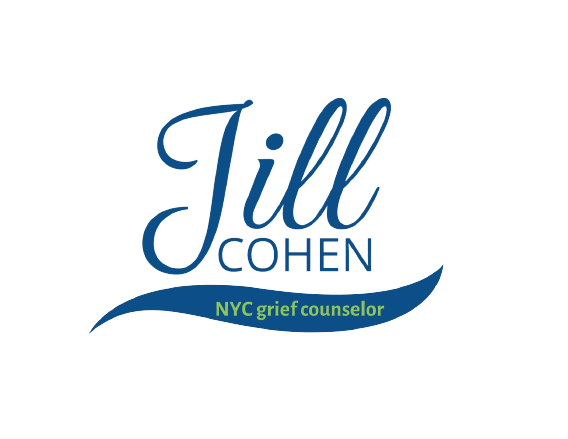
Grief Counseling for Your First Significant Loss
When Someone You Love Dies Too Soon, Everything Changes
Death changes everything
Losing someone important in your 20s or 30s is jarring. At a time when your peers may be focused on building careers, relationships, and future plans—you’re grappling with something else entirely: grief.
Whether it was a parent, partner, sibling, or close friend, this kind of loss can feel deeply disorienting. It’s not just that they’re gone—it’s that nothing feels the same anymore. And no one seems to know what to say.
This kind of grief can feel invisible. You may be told you're “so strong” when you’re actually exhausted, or advised to “get back to normal” when you don’t even know what normal is anymore.
What Grief Counseling Can Offer:
In this space, you don’t have to explain or hide how much it hurts. Grief counseling offers room to:
Say what feels unspeakable—without judgment or pressure to be okay
Work through the shock, guilt, anger, or numbness you might be feeling
Talk honestly about how the loss has changed your identity, your relationships, and your plans
Begin to imagine what life could look like after everything changed
Carry forward the memory of your person in ways that feel true to you
Losing someone you love is heartbreaking
Who this is for:
You might be:
Mourning the sudden loss of a parent in early adulthood
Grieving a partner, sibling, or friend whose absence has created a huge gap
Experiencing delayed or complicated grief from a loss you didn’t feel safe to process at the time
Feeling like no one else around you understands what you’re going through
This support is for you—even if it’s been months or years since the loss. Grief doesn’t follow a schedule, and there’s no expiration date on your pain.
My Approach:
Grief in early adulthood often carries layers: fear, identity confusion, anxiety about the future, or anger that no one else seems to get it. I provide a space to unpack all of that. We’ll work together at your pace—no toxic positivity, no platitudes. Just real, grounded support.
You May Have Questions Like These:
-
Grief counseling is a supportive, therapeutic space in which, guided by a grief professiona,you can beging to process the loss of someone you love. It’s not about “fixing” grief—because grief isn’t a problem—it’s about helping you understand and navigate the emotional, mental, and physical impact of loss.
-
Because it is. When grief enters your life for the first time, especially through the loss of someone close, it can completely upend your sense of reality. You’re facing something that no one is ever fully prepared for. I do this work because I believe that nobody should have to grieve alone. Everyone’s grief is different and there is no “normal” way to grieve. Grief counseling can help you normalize your grief, helping you understand what you're feeling and why.
-
There’s no perfect way to grieve, but there are ways to move through it that feel more supported and less isolating. A grief counselor can help you find language for your loss, process emotions as they come, and develop healthy ways to cope—at your pace, and in your way.
-
Yes, completely. Grief is unpredictable. You might feel numb, exhausted, furious, even oddly peaceful—sometimes all in the same day. Working with a grief counselor gives you a safe, non-judgmental space to explore and make sense of those shifts, and to feel a little less alone in the chaos. When grieving, everything you feel is normal. Grief is a complete mind and body experience.
-
Grief creates a kind of invisible separation between you and the world—especially if the people around you haven’t been through a similar loss. Counseling offers a space where you don’t have to explain or perform. Just be you. Raw, sad, angry, quiet—you’re welcome as you are. I am here to bear witness to your grief and be present for all parts of it.
-
Every client is different. Some people come for a few sessions to get grounded. Others benefit from ongoing support over months, especially after a sudden or traumatic loss. And i’ve even had clients with me for up to two years. In addition to processing the loss together, I offer coping tools and help navigating this new life, experiencing a loss. Together, we’ll create a pace and plan that feels right for you.
-
You may start noticing subtle shifts: feeling more emotionally steady, less isolated, more self-aware, or better able to talk about your loved one. You might not cry less—but you may cry with more understanding. Progress in grief isn’t at all about “moving on,” afer a loss, but about moving “forward” and learning to live with the loss and despite the loss.
You CAN survive this loss.
Grief counseling can help.
I would like to thank you for all your help and insights. I literally couldn’t have done this grief journey alone. It’s been a year since my mother died and I survived, thanks to your guidance.
— 29-year-old man, grieving the loss of his mother
When my Dad was diagnosed with terminal cancer, I knew I was in trouble. He was my best friend. Working with you in the year before his death and afterward made all the difference in how I handled this huge first loss.
— 31-year-old woman, grieving the loss of her father
Tough Times Call for Gentle Support
Jill Cohen, is a nationally recognized Grief Counselor, trusted by the New York Times, Prevention, Bravo, and many other media outlets. With more than 15 years of experience, Jill knows how to help grievers to honor their loved ones and move forward into a new normal. Schedule a call to discuss how Jill can help you during this difficult time.



